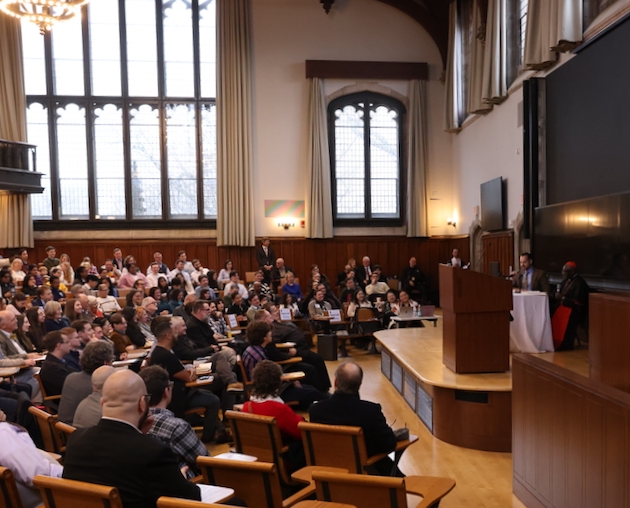
One of the largest lecture halls at Princeton University Is nearly completely full Saturday afternoon. The attendees are young and enthusiastic. For the Aquinas Institute, the Catholic chaplaincy at Princeton University, is hosting Cardinal Sarah. The Cardinal has just published a book – The Song of the Lamb – written in conjunction with Peter Carter, the music director of the Aquinas Institute about music and the faith.
The Cardinal first gave a lecture and then entered into a wide-ranging dialogue with Peter Carter. In the course of the afternoon Cardinal Sarah touched on many topics of which I can capture only a small selection. He spoke of how he had learned in his village from his parents and a French missionary that there is a different kind of music for the church, one rightly called sacred. He spoke of how chant always has the priority of place and of the importance of the Latin language. The liturgy is not something that we do or we create but something that Christ, dwelling within us, performs. Active participation does not mean uniformity. There are different roles within the liturgy: the celebrant, the choir, the congregation each has a different role to play but they are all working together in the one action. Each is participating actively but in different ways.
Again and again, Cardinal Sarah returned to the importance of music. Perhaps paradoxically, music is where our heart speaks to God without words. Music is essential to the liturgy – not a nice addition to it. And Gregorian chant is not something we made up but was given to us.
Cardinal Sarah spoke of the injustice of the persecution of those within the Church who follow the old rite of the Mass. We should pray that the Holy Spirit inspires Pope Leo to liberate this Mass and the Latin language in general. I note that the cardinal did not give any indication whether he thinks Pope Leo will actually do this.
Speaking of inculturation, he remarked that what the liturgy can convey is unity with other Christians at the present time in other parts of the world and throughout history. In the liturgy we are not trying to express ourselves, our identity or our culture. We should not seek to cut ourselves off from other cultures but to join with them.
As to Africa, the Church has found a new home there because the African is still open to God. There obviously remain tremendous problems and challenges in that continent. Nevertheless, this openness of the African culture to God can help other peoples (re)discover the primacy of God.
We should not prioritize too much “understanding” the liturgy. Cardinal Sarah noted that even in our own language we cannot understand the mysteries of the Catholic faith. Understanding is not sufficient. Sarah pointed out, for example, that even though the liturgy has been translated into German, the German Church is anything but a role model, what with their demands to change doctrine, to ordain women as priests, etcetera….
At the end we must always return to the need for evangelization and above all must evangelize our fellow Christians. In places like Europe many are baptized but not evangelized. We should recall that we are not just another Christ but Christ himself in this world. And to do this we should strive to “be holy.”
At the conclusion of the talk and interview Cardinal Sarah offered to sign his book. A very significant percentage of the listeners took him up on it and formed a long line to obtain the signature. All at all, it was a remarkable experience.
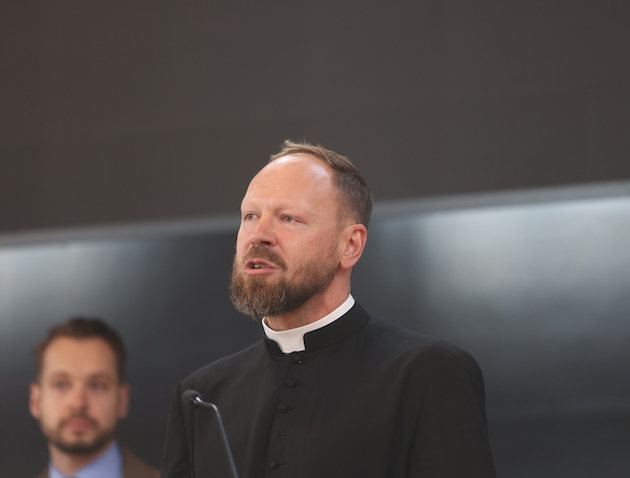
Fr.Zach Swantek, the chaplain of the Aquinas Institute, introduced the speakers. Those familiar with the Catholic chaplaincy at Princeton as it existed in the 1980’s are amazed at the progress.
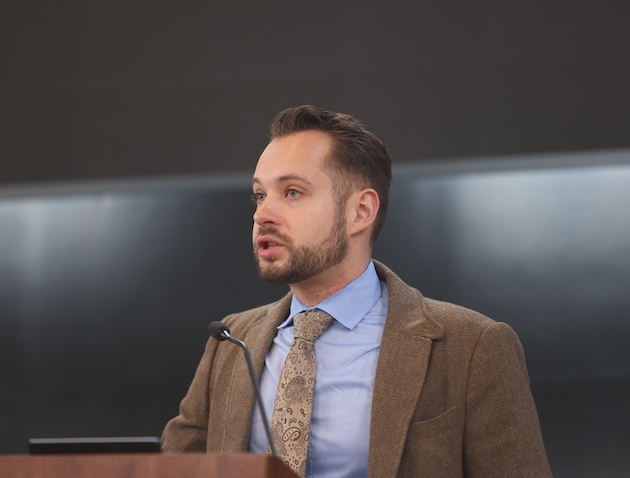
(above) Peter Carter.
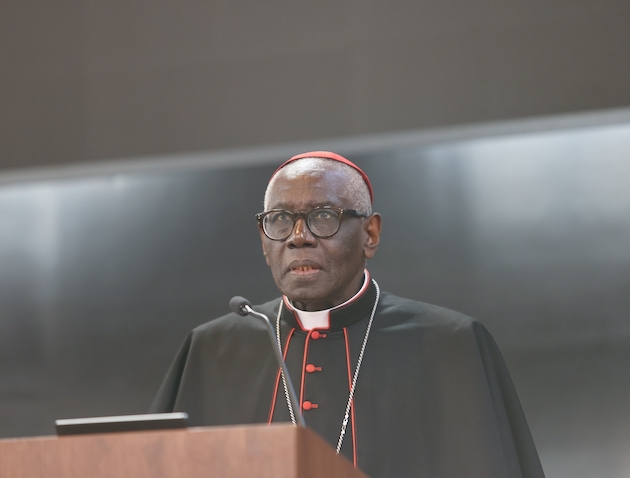
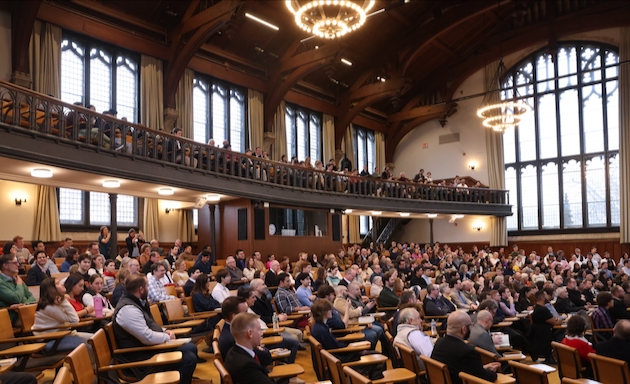
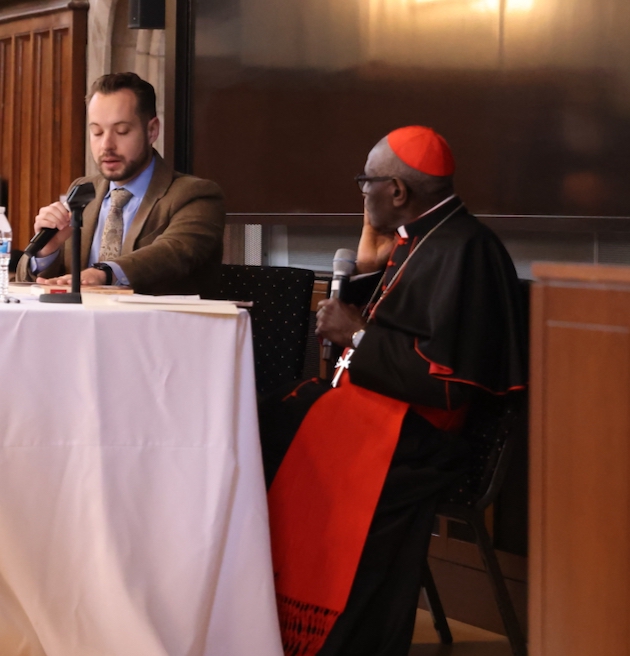
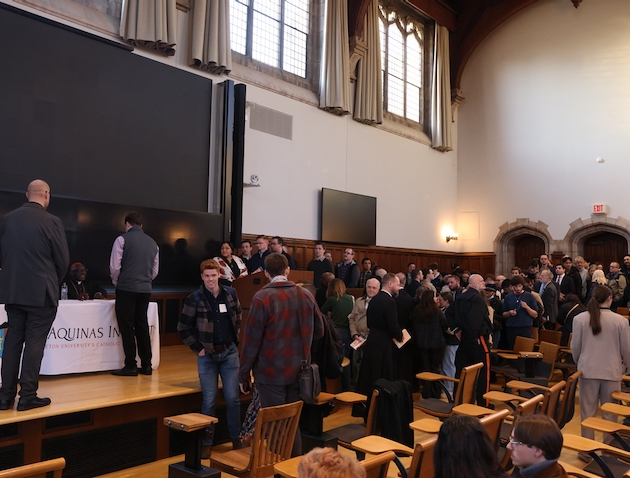
(Above) The long line forms for an autograph.
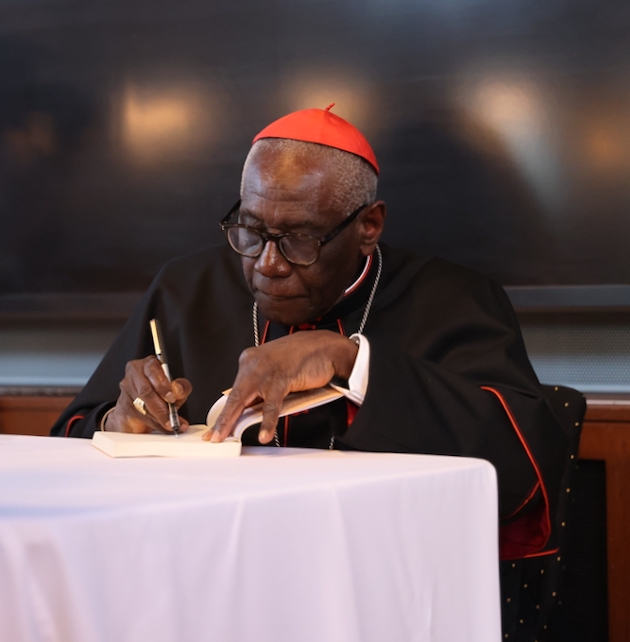
Related Articles
No user responded in this post